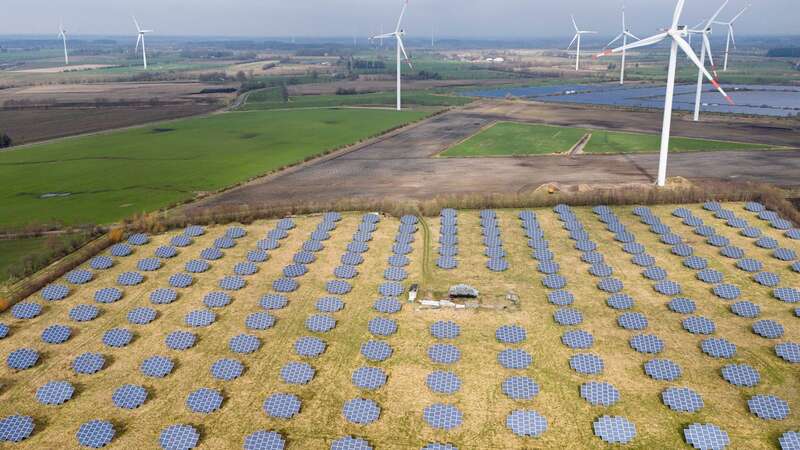
The world's governments have agreed they want to triple renewable energy by 2030, a goal laid out at the U. N. climate summit in December.
But right now, the post-pandemic global economy is throwing up obstacles that will need to be overcome if the goal is going to be met. Here are the big hurdles to solar, wind and other renewable energy projects:.
COSTLY CREDIT
Central banks in Europe and the U. S. have raised interest rates to combat inflation. That hits renewables harder than it does investment in fossil fuel projects.
Renewables have much higher up-front costs to build wind farms, solar arrays and more, and that borrowing costs money. After that, operating costs are negligible since the wind and sun are free, of course - but high interest rates have made it harder to get new projects off the ground. In many cases, the answer is raising the agreed price of the electricity flowing to the grid to cover the added costs.
 Rail strikes resume tomorrow as Brits face disruption on return to work
Rail strikes resume tomorrow as Brits face disruption on return to work
INFLATION
Everything costs more these days - not just food and rent, but the electric cables, power turbines, construction materials and services needed to build wind or solar installations. One exception: solar panels have plunged in price due to massive Chinese production.
SNARLED SUPPLY CHAINS
Renewable energy projects are facing delays due to a lack of skilled engineers, raw materials and the machinery needed. Orders for new wind turbines or transformers are taking much longer to arrive than before the COVID-19 pandemic.
The 'Not In My Backyard' syndrome is still a problem in many places. For example, in Bavaria, Germany, people don't like the noise and look of wind turbines in their beautiful landscape.
Even though the German government wants more renewable energy, installations have been slow in Bavaria and other areas. This is after they lost access to cheap Russian natural gas that was used to heat homes and power factories.
In poorer countries, things are even worse. They often have to pay more to borrow money because it's not certain if they'll get government subsidies or other guarantees.
This means that building a solar park in Ghana would cost twice as much as in the U. S., just because of the interest rates, says Todd Moss from the Energy for Growth Hub in Washington.
Read more similar news:
Comments:
comments powered by Disqus

































